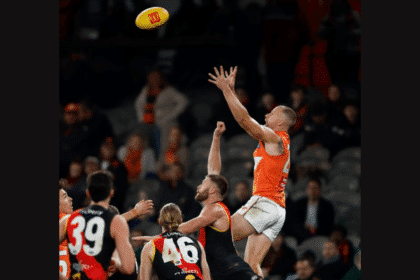In this opinion piece, Catherine de Clare, contributing literary editor at B&T looks at how the media coverage is shaping the narrative around Palestine.
Old men start wars, then young men fight them and die. There are plenty of historical big hitters- Albert Einstein, Winston Churchill, Herbert Hoover who have a quote that says something like that, but you don’t have to be a genius to recognise that the escalation of violence, meeting atrocities with atrocities, and the killing of thousands and thousands of civilians, mostly children who are not even aware of the conflict that they have been born into, is not going to solve anything.
A video of a protestor in Egypt lamenting to a CNN reporter the silencing of Palestinian voices has gone viral. The media and Western nations have been hamstrung by the crisis, terrified of making a wrong step, being seen as either an apologist or anti- Semitic, of being found to be taking sides. All the while a humanitarian crisis is unfolding before our eyes after which everyone will find themselves on the wrong side of history, an no-one will be able to claim that they didn’t see it coming.
It should not be impossible for news outlets or any of us to be able to state that the horrific attacks and hostage taking by Hamas on October 7 are atrocities, and that the killing and starving of Palestinian civilians and children in retribution does not make sense. The Gaza Strip has been occupied itself by the terrorist organisation Hamas and its Iranian backers, and Israel has kept a stranglehold on the area for decades. The roots of the problem are ancient and the solutions complex, but the world can not sit by while an area as densely packed and already deprived as the Gaza Strip is bombarded with bombs and there is no passage out of the area or humanitarian assistance, and basic supplies are cut off.
Israel’s lands have been hard won and it has a profound right to defend itself, but as IDF spokesperson R Arm Daniel Hagari has stated “the emphasis is on damage not on accuracy” when bombing the tiny strip. The families of the hostages are more concerned with getting their loved ones back.
The fear around saying the wrong thing and the silencing of the Palestinian narrative first came to recent prominence with the cancelling of Adania Shibli’s award ceremony at the Frankfurt Book Fair. It has gone further now with the removal of social media accounts that are posting about the horrors taking place on the ground. This only highlights the concern that citizens and governments around the world have about the power of Meta and it’s AI to craft and control the news. Others have found that their social media accounts are still active, but their posts are not being sent to their network and certainly not being promoted more widely, whereas posts with a conflicting tone or narrative are being pushed up by the algorithm. The same story is coming out on the ground, with people inside the war zone who have found themselves unable to contact the outside world, turning to Google Maps to send brief calls for help and messages of protest by changing the names of homes and businesses on their streets. The media should be serving these people a little better, and there has never been a more important time for a robust and truth telling fourth estate. A war and the rise of AI are a terrifying clash.
Thankfully at the Ubud Writers Festival (LEAD) last week discussion was free flowing and the Gaza crisis was discussed from all angles at a number of sessions. One in particular showcased the commentators and writers Michael Vatikiotis and Antony Lowenstein in a thoughtful conversation with Kirsti Melville. Lowenstein’s book the Palestine Laboratory goes some way to explain the roots of the conflict, and the complicated relationship many countries have with the spy technology and weapons industries from the region, in the name of their own security amongst other agendas, which in turn is another screw tightening the loss of press freedom. Vatiokitis book Lives Between the Lines reveals what has been lost over a much great time frame and maybe what could be again. It harks back to a period that seems further away than ever, “where the Middle East was a place of ethnic and cultural harmony – where Arabs and Jews rubbed shoulders in bazaars and teashops, intermarried and shared family history”.
He recalls through his family history how this borderless idea became covered in lines and violently separated various groups including his family members geographically, religiously and politically. The further we go into the conflict and the more cross generational hate that is seeded, a one, two or twenty-two state solution only gets further away, while present, and future terrorist organisations yet to be born, rub their hands in glee. The powers that be, the old men that start wars, are their very best recruiting agents.








